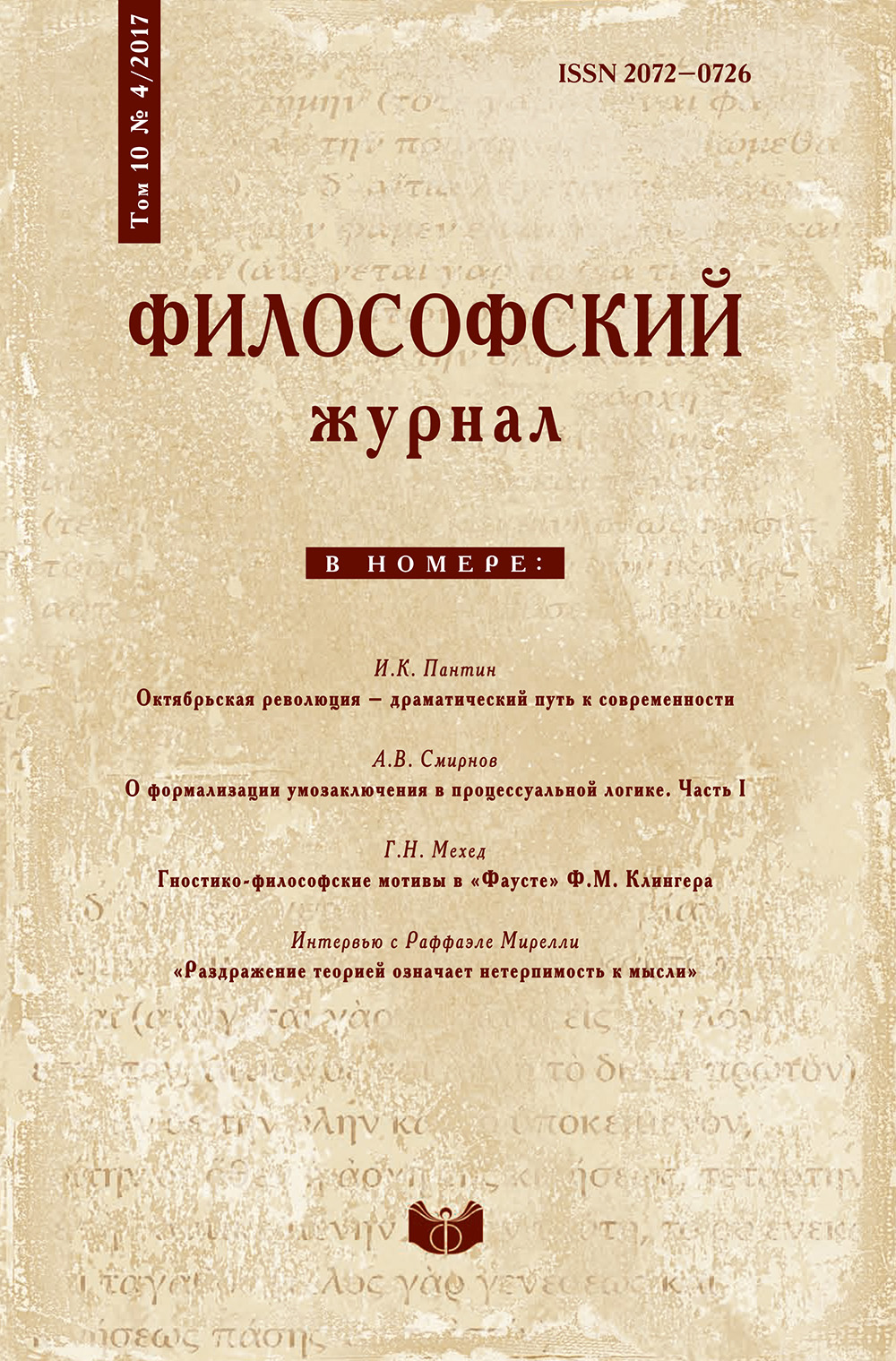Philosophy as ideology
DOI:
https://doi.org/10.21146/2072-0726-2017-10-4-171-180Keywords:
philosophy, ideology, science, critique, freedom, practice, spiritual production, idea, social relations, leisureAbstract
This is an elaborated version of the paper read at the RAS Institute of Philosophy general seminar and attempting to demonstrate that philosophy, alongside with religion, morals, law, etc., directly belongs to ideology, the latter being understood as the world of ideas, or a system of alienated and ideally represented social relations of man. The idea that man as a rational being is by nature free from any form of personal dependence has been fundamental in Classical Western philosophy ever since its origins in antiquity; during the Modern period, with the advent of 'bourgeois (or civil) society', it gradually became universally adopted. (The term 'bourgeois philosophy', often applied to the thinking of this period, seems perfectly justified in this sense.) This idea lies at the heart of all classical Modern Age ideologies, i.e. conservatism, liberalism and socialism, all of which survive to this day, even if in somewhat modified versions. But what can philosophy be outside bourgeois society? For Marx, to take his example, the end of the bourgeois era would immediately mean the end of ideology and, along with it, of all philosophy which is doomed to be superseded by science.From this point of view, it is science that the critique of ideology belongs to, not philosophy. In reality, however, this kind of critique, contrary to Marx's prediction, proved to be not the end of philosophy but rather its transformation into a new quality, that of postclassical philosophy which is as remote from science as it is from ideology. Present-day ideologies in most cases have lost any connection with the idea of individual freedom as it was cultivated in philosophy. One is inclined to look for its legitimation into the depths of one's own existence, outside the limits of reason and society of any kind. Philosophy, on the other hand, tends to assume the role of intellectual intercourse between private persons, which remains unattached to any socially significant ideology. Philosophy thus becomes, as it were, every single one's personal ideology or serves the same function for a close group of friends.






